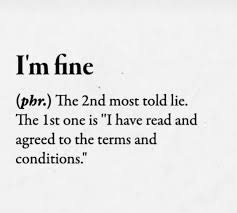BONA, derived from the Zulu greeting to a multitude of people, 'Sanibona' - directly translated as 'we see you' - forms the premise of this publication, by Tebo Mpanza
You can’t keep ignoring it. Pretending it doesn’t bother you. Acting like their silence isn’t the hardest thing you deal with every day. It doesn’t just go away. The anger, the resentment, the bitterness—it’s eating away at you from the inside out. You don’t see it, but we do. It’s in your face, your posture, the way you carry yourself when we sit with you. It’s in the way your laugh doesn’t land like it used to. Your voice is high pitched now. The way you change the conversation, move on swiftly, deflect, make the quick exit. The way you’re always fine. You never ask how we’re doing anymore. You have no interest in how we think, what our days are like, who we’ve met recently. You think you’ve moved on, but you haven’t.
You’re looking a little older, and it’s not age because you’re young. It’s the weight of what you carry. You have nowhere to cast it. It’s taking years off your life, your joy, your relationships. You’ve learned how to cope. You have mechanisms, distractions, ways to block it out. You travel a lot, or not at all. Your world is getting smaller and smaller, so you overcompensate with the relational equity you do have. Even that is on a shoestring because people get tired, or so I’m learning anyway. It doesn’t look like you’re coping at all. It looks and feels like you’re trying desperately to convince us. But we’ve lived a thousand lives, we’ve walked this road before. It’s just hard to tell you because even though you can hear us, you don’t listen. You always know best. You always have.
I had a conversation with a friend today. He was telling me about someone he’d been finding it hard to face again. We bantered, the way we always do, but I knew what he was really saying. It’s hard to celebrate them. It’s hard to show up for them. And what do you do with that? When you’re supposed to be fine. When enough time has passed. When you’ve decided you’d moved on—but something in you still flinches at the mention of their name.
I’ve seen it in leadership. And the longer you’re in leadership, the more relational trauma you accumulate. Which is ironic. The very thing that’s meant to refine us, to teach us to lead with integrity, to serve with humility—is also where we pick up the most wounds. The competition disguised as camaraderie. The comparison. The insecurity. The pretence. The false humility. The embarrassment. The fear. The game. Everyone is playing it.
The unresolved conversations. The people you used to serve closely with that you now avoid on the timeline. The silent unfollow. The stiff small talk when you do cross paths. You think you’re free, that’s not freedom.
You’re not saying much, but you’re teaching us how to respond. There’s generational weight to this. We have a front-row seat. We see it up close. The avoidance, the pretending—it’s shaping the kids. I don’t know who told us that keeping things buried was strength. That pretending was noble. That silence was wisdom. This is all I saw in my adolescence. And now, as I try to get answers, I’m realising—I’m breaking generational cycles of silence. Or at least, I’m trying. We don’t know how. We don’t know where to begin.
How much longer? How long will you carry this? How long will you pretend you don’t care? What happens ten years from now? How must we treat them? As Julius Malema famously said, "Give us a sign, Mama Winnie."
I don’t think silence heals, I think it deceives.






